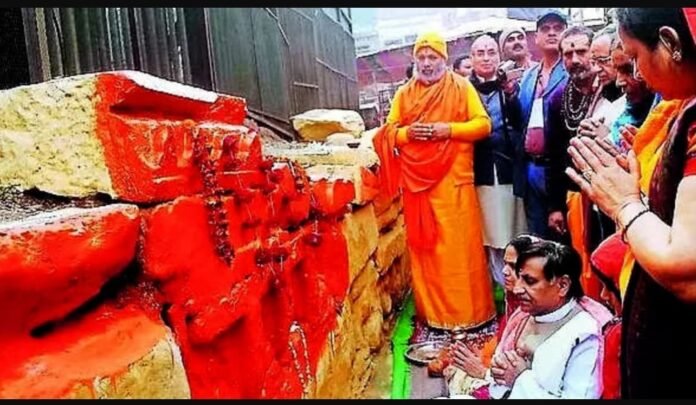Varanasi – In a stunning turn of events, Jitendra Singh Visen, the chief of Vishwa Vedic Sanatan Sangh, a prominent Hindu organization, made an unexpected announcement on June 3, declaring the cessation of the pursuit of Gyanvapi mosque related cases. The decision has sparked significant discussions and altered the landscape of the contentious litigation surrounding the historic site.
The Gyanvapi mosque, located in Varanasi, Uttar Pradesh, has long been at the center of a legal dispute. The case revolves around the claim that the mosque was built on the site of an ancient Hindu temple. For years, multiple parties have been involved in legal battles, seeking to establish their respective claims and asserting their rights over the disputed property.
Visen’s decision to abandon the pursuit of these cases has sent shockwaves through the Hindu community and raised eyebrows among legal circles. Known for his staunch advocacy of Hindu causes, Visen’s announcement has surprised many observers who anticipated a continued legal fight.
Addressing a press conference in Varanasi, Visen cited several reasons for his unexpected change in strategy. He expressed a desire for communal harmony and stressed the importance of maintaining peaceful coexistence between Hindus and Muslims. Visen emphasized the need to prioritize social cohesion over protracted legal battles that could potentially deepen existing divisions.
The announcement has garnered mixed reactions from different quarters. Supporters of Visen and the Vishwa Vedic Sanatan Sangh hailed the decision as a positive step toward fostering unity and peace. They view it as an opportunity to bridge the religious divide and build a more inclusive society. However, some members of the Hindu community, particularly those deeply invested in the Gyanvapi mosque litigation, have expressed disappointment and raised questions about the sudden change of direction.
Legal experts are analyzing the potential impact of Visen’s decision on the ongoing litigation. While the Vishwa Vedic Sanatan Sangh’s withdrawal from the cases may create an opening for other parties to alter their legal strategies, it remains to be seen how this development will shape the future trajectory of the Gyanvapi dispute.
The Gyanvapi mosque case has attracted significant attention both nationally and internationally, with its historical and religious significance. The legal battle surrounding the site has been closely monitored by scholars, activists, and religious groups alike.
As the dust settles after Visen’s surprising announcement, the Gyanvapi mosque litigation enters a new phase, with uncertain outcomes. The impact of this decision on the overall dynamics of the dispute will undoubtedly unfold in the coming days and weeks. The question of who will take up the mantle in pursuing the case and how stakeholders will respond to this unexpected turn remains to be seen.

